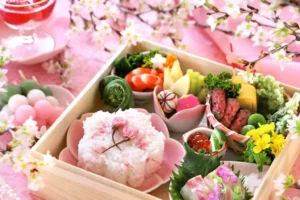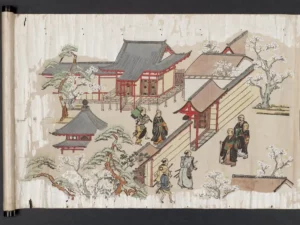Astronomy has always been a source of humanity’s fascination, mystery, and guidance. In ancient times, different cultures developed their own interpretations and beliefs about the cosmos they observed. Among these, Japanese culture stands out due to its unique blend of astronomy, mythology, and cultural values. Ancient Japan astronomy provides a deep dive into the country’s rich history. Revealing how the stars, seasons, and stories have shaped its cultural heritage.
From mitsu boshi (three belt stars of Orion) symbolizing the start of crop cultivation to the position of stars predicting events, ancient Japanese astronomy was a harmonious blend of science and mythology. Keep reading as we dive deeply into ancient Japan and how astronomy was essential to Japanese culture.
Table of Contents
ToggleWhat is astronomy?
Astronomy is the branch of science that studies everything outside Earth’s atmosphere. This includes things in our solar system, such as the sun, the moon, and the other planets. It also includes things far away in outer space, such as other galaxies, distant stars, and black holes. Astronomers usually research subatomic particles and things that may be out in space, such as dark matter. Astronomy also involves using scientific equipment, such as telescopes and satellites.
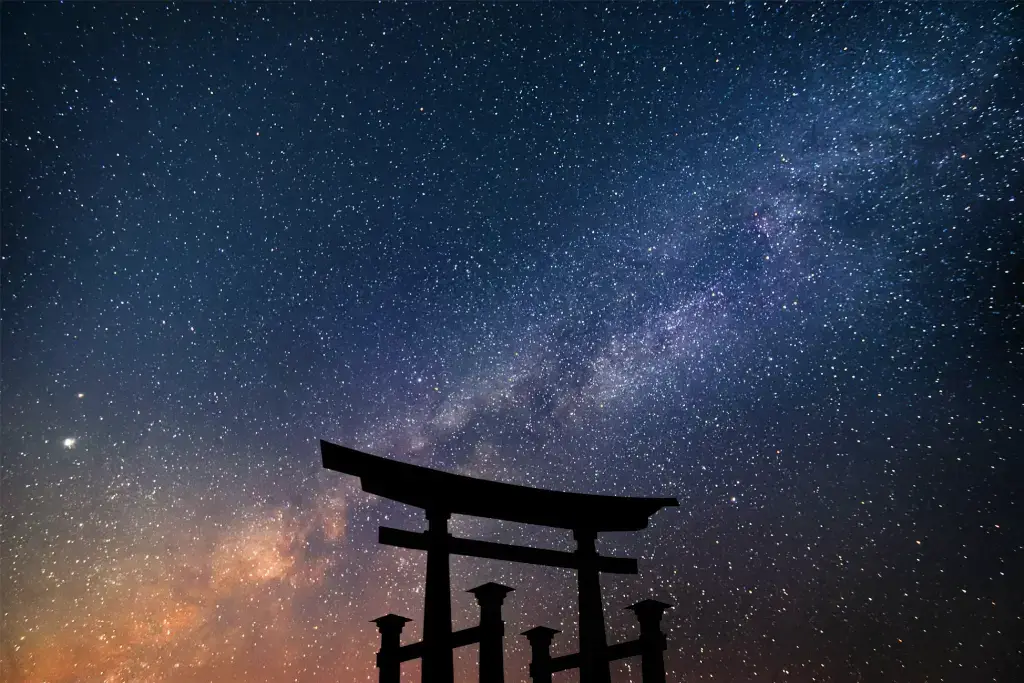
It is primarily considered one of the first sciences in history. Ancient peoples’ lives were governed and influenced by the stars and the movement of our Earth around the Sun. Symbols written on the stars guided ancient people while sailing or determining the best time to plant a crop.
What’s the difference between astronomy and astrology?
Astronomy is a science, while astrology is not. Astronomy relies on proper scientific methods and research to arrive at conclusions that can be tested. At the same time, astrology makes predictions that can’t be proved and uses logic, often based on cultural traditions. There is currently no scientific evidence that the position of celestial objects can influence human behavior, as astrology suggests.
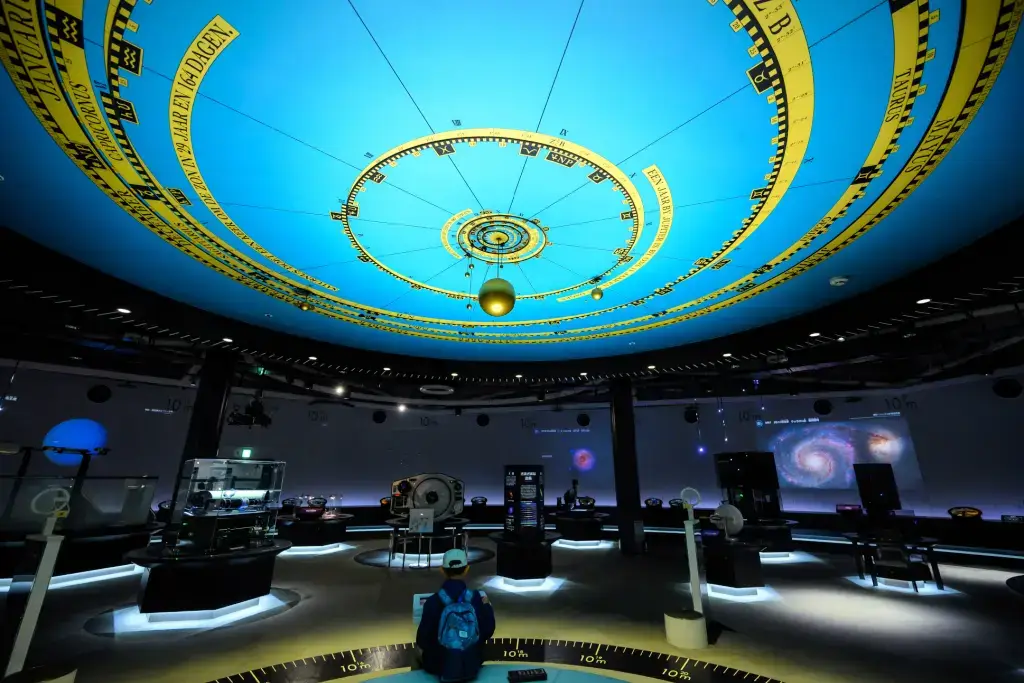
Want to experience the flavors of Japan but can’t make the journey here? Check out Sakuraco! Sakuraco delivers traditional Japanese snacks, teas, sweets, and snacks from local Japanese makers directly to your door so you can enjoy a taste of Japan anywhere!
Are there notable constellations or myths?
Stars have helped people navigate, served as a method of telling time, and been a key element in Japanese folktales. In ancient Japan astronomy, Mitsu Boshi played an essential role in Japan’s cultural heritage. Japanese culture believes that the group of stars is a symbol of knowledge and cultural values. They believed Orion gave information regarding their agriculture, such as when to cultivate their crops.
Similarly, Subaru (Pleiades) were revered for their beauty and brightness. The Subaru has left its mark on Japanese culture. It has influenced festivals and folklore and found its way into modern branding, as seen in the famous automobile manufacturer Subaru.
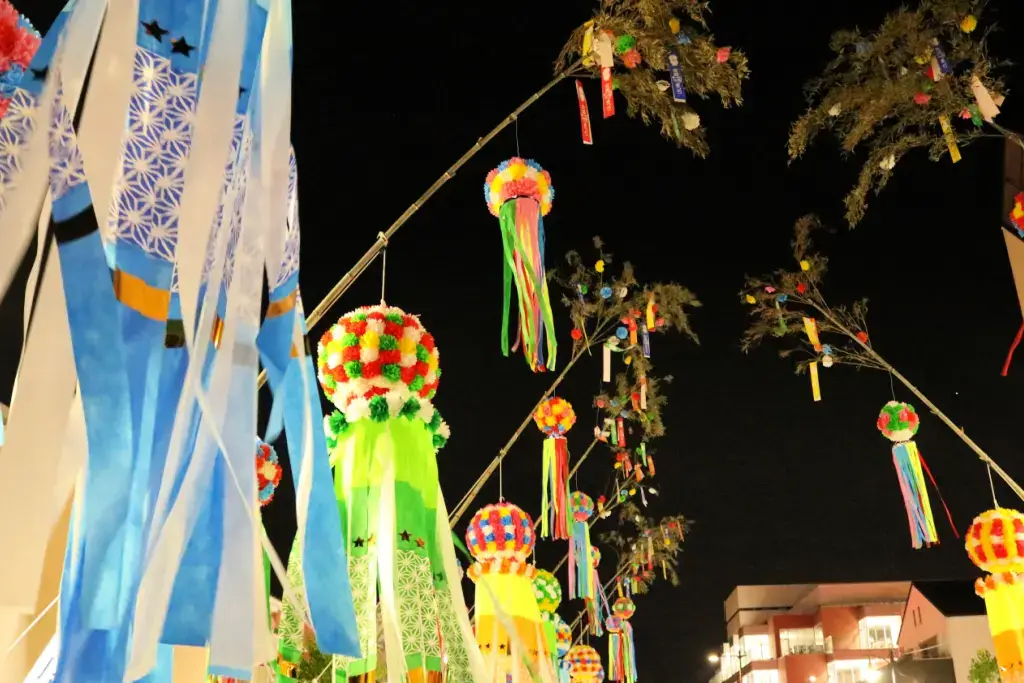
The Japanese star myth centers around Tanabata, where two star-crossed lovers, Orihime and Hikoboshi, separated by the Milky Way, can meet once a year. This story, deeply rooted in Japanese culture, is celebrated annually with festivities and decorations. Another important observance is tsukimi (moon viewing festival). Held in autumn, it celebrates the beauty of the full moon and offers an opportunity to appreciate the night sky.
Stars also played an essential role in the Japanese court. Court astrologers often interpreted the movements and positions of stars to predict events or make sense of current happenings. Their interpretations, based on a mix of astronomy and mythology, influenced the court’s decisions. This blend of science and mythology is integral to Japan’s cultural heritage. It also reminds us of the timeless bond between humans and the cosmos.
Why is ancient Japanese astronomy important?
Astronomy profoundly influenced ancient Japanese art and literature, shaping the narratives that define these cultural forms. They were sources of inspiration and a way to express human emotions and experiences.

Ancient astronomy also influenced the major Japanese religions. In Shinto, the indigenous religion of Japan, the sun goddess Amaterasu is a central figure. Buddhism, imported from the Asian continent, also used astronomical elements. The Buddhist cosmological model, for example, includes a detailed picture of the celestial realms.
As we’ve discovered, astronomy’s influence on ancient Japanese culture is profound and pervasive. From stars guiding when to cultivate crops to influencing the decisions of the Japanese court, astronomy has played a significant role in Japan’s history, shaping its mythology, religion, and cultural practices. Did you know the importance of ancient Japan astronomy in shaping Japan’s cultural heritage? Do you have a favorite myth or constellation? Let us know in the comments below!




